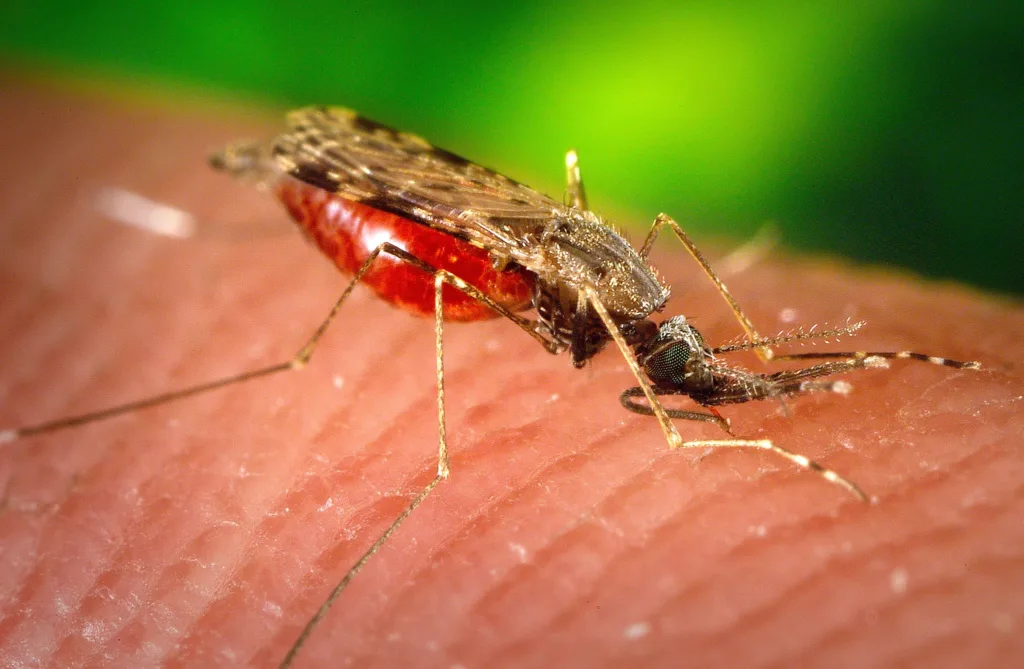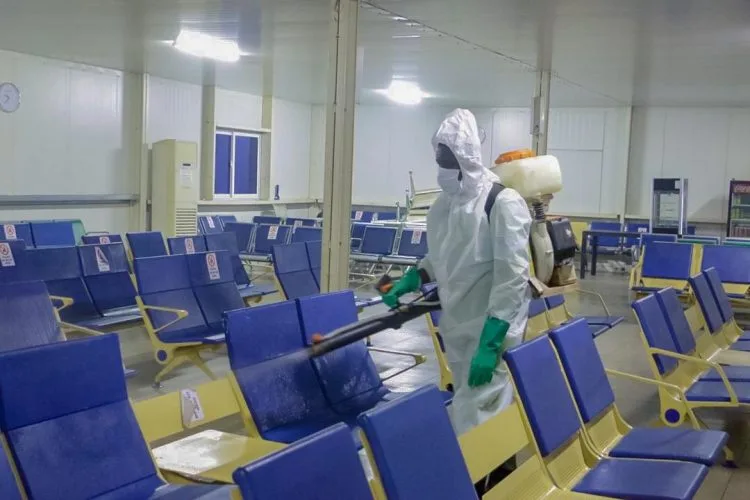“Experts” claim that dengue fever is coming to Europe because of climate change
John Martin Johansen 17/04/2023 02:21
“Experts” claim this may soon become a common sight in Europe, because dengue fever will come due to “climate change”. Photo: Zoomlion Ghana Limited, CC BY-SA 4.0, Wikimedia Commons
France has seen an increasing number of local outbreaks of dengue fever with “experts” saying it could be due to climate change.
The Agence Regionale de Sante – France’s health policy agency – reported three separate local dengue outbreaks between June and September 2022.
In contrast, the National Library of Medicine (NLM), a biomedical research and data institute in Bethesda, Maryland, counted 65 cases in nine different “epidemic events” in the French regions of Occitanie, Paca and Corsica from January to October 2022.
In a case study to be presented this week at the European Congress of Clinical Microbiology and Infectious Diseases in Copenhagen, a 44-year-old Brit contracted dengue while travelling near Nice in September 2022.
She developed symptoms of dengue – fever, rash, muscle pain and headache – a day after arriving in the UK from France, where she lived with her family, who all had the same symptoms.
“Emerging health threat”
Dr Owain Donnelly, one of the authors of the report ‘Dengue in southern France: a new health threat?’, says the following:
– With climate change, especially warmer temperatures and more rainfall, and increasing global trade and tourism, we may see more parts of Europe with the right combination of factors for dengue outbreaks.
Dengue is transmitted by Aedes mosquitoes which also spread Zika and Chikungunya.
Worldwide, there are up to 400 million cases of dengue infections each year. Around 100 million are severe enough to cause symptoms, which can include fever, debilitating joint pain and internal bleeding.

Aedes aegypti mosquitoes, prefer to suck blood from humans. It is one of the mosquito species that spreads dengue fever. Now it has been discovered in France, and “experts” naturally claim that cause is due to climate change. Photo:James Gathany, USCDCP, CC0, via Wikimedia Commons
It is estimated that 10,000 die from dengue each year.
Dengue is common in parts of the world with warmer weather, such as Brazil and India. It is now endemic to more than 100 countries in Southeast Asia, Africa, the Americas, the eastern Mediterranean and the western Pacific.
In recent years, however, it has spread to new areas, including Europe.
France in particular is experiencing an “exceptional epidemiological situation that is developing”, according to the NLM. The local cases for 2022 exceeded the total number recorded from 2010 to 2021.
One of the “transmission incidents” recorded – 34 cases in the municipalities of Saint-Jeannet and Gattieres, according to the NLM – has so far been “the largest ever documented in Europe”.
The French health authorities warn of more cases in the future.
Climate change is to blame
Climate change is contributing to this spread in Europe, say the “experts”.
That is the main reason now, said Dr. Rontgene Solante, expert in infectious diseases at San Lazaro Hospital in the Philippines.
He said that “it is inevitable” that dengue could soon become endemic in France and other parts of Europe “because we are seeing more hot and humid days that allow mosquitoes to survive and thrive in places where they could not before”.
Warmer temperatures shorten the time it takes for a mosquito to become an adult and increase the time between when a mosquito picks up a disease and is able to pass it on.
Aedes aegypti is of particular concern. While other mosquito species sting what suits them, Aedes aegypti prefers to sting humans.
Warmer temperatures also expand the mosquitoes’ range, allowing them to breed at higher altitudes that would otherwise be too cold for them, and because of shorter winters, extend the period they can be active, it is claimed.
High humidity increases the survival, feeding behaviour and egg development of Aedes aegypti, while rainfall, storms, floods and rising sea levels can increase mosquito populations by providing the shallow, stagnant pools of water they need to reproduce, say experts in the field.
Dr. Solante said the dengue situation in countries located in the tropics and subtropics can only get worse as the world warms.
We already see dengue in these places all year round, he says.
A study published in the journal Nature Microbiology estimates that more than two billion more people globally could be exposed to dengue before 2080 due to climate change.
Dr Solante said an upside is that more local outbreaks could spur wealthier nations like France to devote more resources and expertise to fighting dengue with better vaccines and treatments.
The current dengue vaccine – Dengvaxia – is ineffective for most people and does not cover all types of dengue. However, this vaccine is not available in Norway, where you can only get the Qdenga vaccine.
The safety and efficacy of this vaccine in children and adolescents have been investigated in a study inAsia and Latin America, and FHI claims there is little knowledge about the effectiveness and safety of the vaccine if dose two is delayed or not taken.

